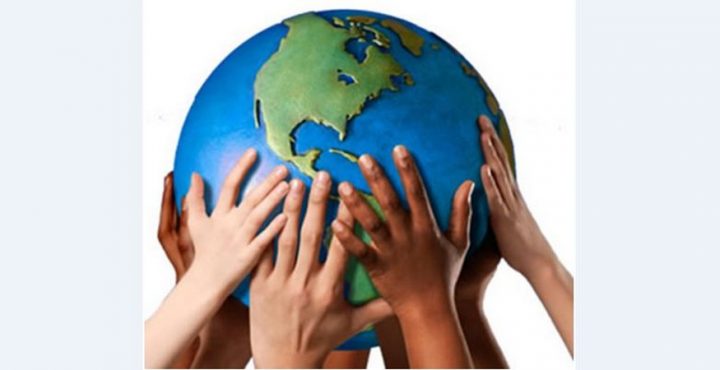Paranoia-mongers and arms manufacturers surely love the post-apocalyptic films and TV series about people and towns fighting one another with deadly weapons in order to gain or defend their resources. Whether the scene is set in the present or a distant future, after a nuclear war, an invasion by zombies or natural disasters, the need to protect food, medicines and fuel promotes arming oneself to the teeth just in case the scenario becomes real.
We have seen, however, that in response to disasters large numbers of people do exactly the opposite. Solidarity prevails. Every single time. After the 2004 tsunami, the Twin Towers, the Grenfell Tower fire in London, the floods in the US and India/Bangladesh/Nepal/Pakistan, the Syrian refugee crisis. In spite of poor or negative responses from the powers that be there are always people who postpone their own concerns in order to help others.
There are, of course, exceptions, those who take advantage of the situations for personal gain, fraudsters, the owners of property in Houston demanding their tenants continue to pay rent even if the houses are uninhabitable and the like, and such cases are much discussed in the media because they serve the narrative that solidarity is dead and we should accumulate wealth and weapons because we cannot rely on anybody’s help. In the same vein the State is shrunk more and more so that when catastrophe strikes, when the State is the only thing with the capacity to give comprehensive responses to save people, it finds itself devoid of funds and in organisational disarray.
But something unexpected happens in the hearts of people assumed to have been comprehensibly brainwashed by such narrative. Compassion springs forth and it feels good. Here is the element that preserves solidarity in humanity even in a system designed to annihilate it. The register of feeling for others and helping others trumps much of the conditionings, because above all it feels good. That is why there is still hope for the future of humanity.
The Golden Rule, the humanist principle par excellence says ‘when you treat others as you would have them treat you, you liberate yourself’. (Humanise the Earth, by Silo, Chapter XIII). The marvel of the idea of Valid Action, based on uniting thought, feeling and action, is not to be guided by top down precepts but by inner registers of what makes us grow and become better people, creating also a centre of gravity that protects us from a dehumanising environment.
There is a political expression of this principle, a society where all come together for everybody’s benefit, a true social contract that prioritises health, education, housing and welfare, as there is also a political expression of the antihumanist drive that promotes the obscene accumulation of wealth and resources in fewer and fewer hands. This neoliberalism masquerading as ‘freedom’ attempts to destroy solidarity, presenting it as a weakness, but as we have seen in countless examples, when disaster strikes solidarity emerges again undefeated.
If we take a moment every day to meditate, without having to wait for a disaster, ‘what could I do today to move the world, my world, towards solidarity’, we could feel that little by little something wonderful begins to grow within us, something that gives life a new meaning.










